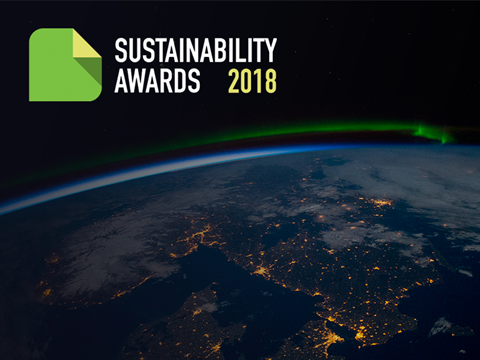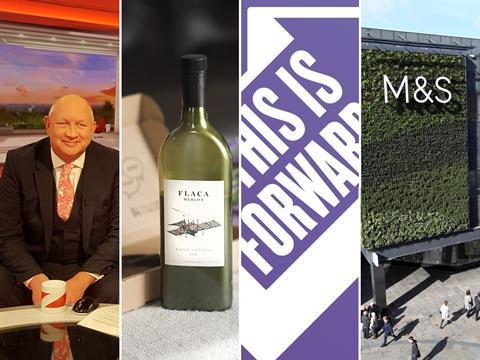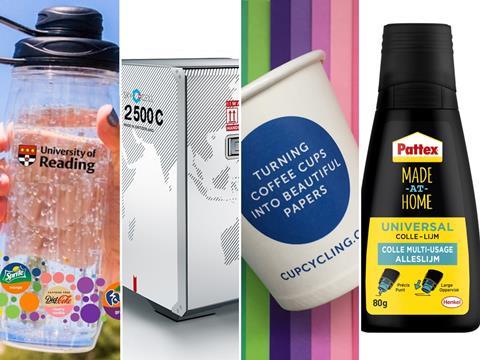
Packaging Europe has announced the top four submissions in each of the six categories of the Sustainability Awards 2018, as judged by the seventeen-strong, independent jury representing the breadth of the European packaging value chain. The six category winners and one overall Sustainability Awards 2018 winner will be unveiled at Scanpack in Gothenburg on 23 October.
Now in its fourth year, the Sustainability Awards has gained a reputation as the most comprehensive and rigorously judged initiative examining the state of sustainable innovation in packaging. Conceived as a way to stimulate scrutiny, uptake and cross-fertilisation of the best ideas around improving the environmental footprint of packaging, the competition challenges the industry to take a holistic approach to sustainability, rather than satisfy itself with gains according to one metric at the expense of losses elsewhere. The 2018 competition attracted 110 submissions from all over Europe - from household brands to academic research.
More with Less
The ‘Resource Efficiency’ category is designed to showcase the best packaging innovations that downgauge materials or reduce carbon footprints without increasing the environmental impact of the packaged product. The first of the four finalists in this category is BillerudKorsnäs’s disappearing cement sack which, when subjected to mechanical action, aggregate and water in the cement mixer, disintegrates into tiny fibres that are bound into the concrete or mortar. The next is Stora Enso’s EcoFishBox, a leak-proof corrugated board alternative to the expanded polystyrene widely used in the fish industry.
The third contender is the Horizon 2020-funded NanoPack project, which is developing state-of-the-art antimicrobial packaging solutions for perishable foods based on natural nanomaterials that will prevent food-borne illness outbreaks and reduce food waste caused by early spoilage. The novel packaging films will display antimicrobial activity against a range of microorganisms, including bacteria, yeast and moulds which cause food spoilage and extend the shelf-life of food products by up to 25%. Last but not least is a biodegradable, waterless flower packaging solution by Uflex that creates significant energy reductions in the supply chain while prolonging the freshness of flowers for 20 days without water.
Click here for in-depth description of the ‘Resource Efficiency’ finalists.

Big Brands
The ‘Best Practice’ category was conceived to celebrate achievements by brand owners or retailers in minimising the environmental impact of their packaging. First of the finalists is Iceland Foods, the supermarket which shook the packaging world by becoming the first retailer to go Plastic Free in January 2018. The next is a collaboration between Garçon Wines and RPC M&H Plastics to develop a recycled PET ‘letterboxable’ wine bottle especially devised for resource-efficient e-commerce delivery.
Meanwhile, the retailer M&S and the giant brand owner Coca-Cola present respective sustainability strategies. Plan A 2025, submitted by M&S, commits to creating all packaging with the circular economy in mind: reducing materials used, reusing packaging where possible, making all packaging widely recyclable by 2022 and developing a monopolymer roadmap. This is Forward Circular Economy by Coca-Cola Western Europe commits, among other things, to 100% recyclable or reusable packaging by 2025, actively working to ensure collection and recycling of packaging, and at least 50% PET packaging coming from recycled feedstocks.
For more information on the ‘Best Practice’ finalists click here.
Designed for Recycling
The ‘Recyclable Packaging’ shines a spotlight on innovations in packaging materials that promote recycling. The first of the finalists, EnShield Natural Kraft by WestRock, is a fully recyclable paperboard providing oil and grease resistance without the use of poly coating. Meanwhile, Mayr-Melnhof Karton’s FOODBOARD pure virgin fibre is a ‘next-gen’ cartonboard with an innovative barrier that shields packed food against the migration of mineral oils, phthalates and bisphenol A.
The third finalist is Braiform’s garment hanger recycling system, which brings broken hangers back as raw material for new ones. Lastly, RPC bpi protec’s X-EnviroPouch matches multilayer film functionality with a 100% polythene, therefore fully recyclable, alternative.
Click here for profiles of the ‘Recyclable Packaging’ finalists.
Engineering
In the ‘Machinery’ category the judges were looking for innovations that increased environmental efficiencies in the production line or facilitated more sustainable practices. The finalists include Aseptic Combi Predis, submitted by Sidel, which merges dry preform sterilisation with aseptic blowing, filling and sealing functions within a single production enclosure, eliminating water and minimising use of chemicals, while facilitating lightweighting. The solution is estimated to have saved seven billion litres of water and 57,000 tons of PET across the production of 46 billion bottles. The second entry competing for the award is Amcor’s breakthrough LiquiForm technology, which uses consumable liquid instead of compressed air to simultaneously form and fill the container – in the process eliminating the need for blow-moulding equipment and high-pressure air systems, delivering significant energy savings while facilitating lightweighting of bottles.
The next finalist is Made2Fit by DS Smith: a technology which improves operational efficiency, eliminates void fill and lowers transportation costs for e-commerce. Ardagh completes the quartet with its implementation of hybrid battery storage to secure a reliable supply of green energy, providing a back-up during peak consumption and delivering energy back to the grid when demand is low.
Click here to read more about the ‘Machinery’ finalists.

Circularity
The category ‘Driving the Circular Economy’ marks breakthroughs in recycling or reusable packaging systems and initiatives promoting increase in recycling rates or demand for recyclate. The finalists include the 2500C Temperature Controlled Container submitted by SkyCell AG, a recycled plastic airfreight solution that delivers drastic reductions in CO2 emissions, and Coca-Cola’s re-usable intelligent bottles scheme, piloted at the University of Reading. Also competing in this category is James Cropper’s CupCycling technology for recycling disposable cups on a commercial scale, and Henkel’s Pattex – the first consumer adhesive packaging entirely made of post-consumer recycled resin.
Details of the ‘Driving the Circular Economy’ finalists can be found here.
Renewables
The next category - ‘Bio-Based’ - celebrates the development or innovative use of bio-based materials with significant positive potential in packaging applications. The first contender is AgriRAP, developed by Rapid Action Packaging, a sandwich-wedge using fibres salvaged from the inedible waste left over from crops and featuring a peelable film for easy separation prior to recycling. Competing against this is a cellulose-based packaging material by VTT Technical Research Centre of Finland – a compostable three-layered substrate that looks and performs like plastic with strong gas and moisture barrier properties.
The third contender is SIG Combibloc’s SIGNATURE PACK, a world first aseptic pack 100% linked to plant-based renewable material, utilising tall oil (a waste by-product from the paper industry) as raw material. Tall oil is also the basis of Dow’s submission – a sustainable feedstock for bio-based LDPE production.
For more info on the ‘Bio-Based’ finalists click here.
Want to be the first to know the winners of the Sustainability Awards 2018? You’re welcome to join us at the Awards ceremony and the Sustainable Packaging Summit at Scanpack in Gothenburg on 23 October 2018.

















